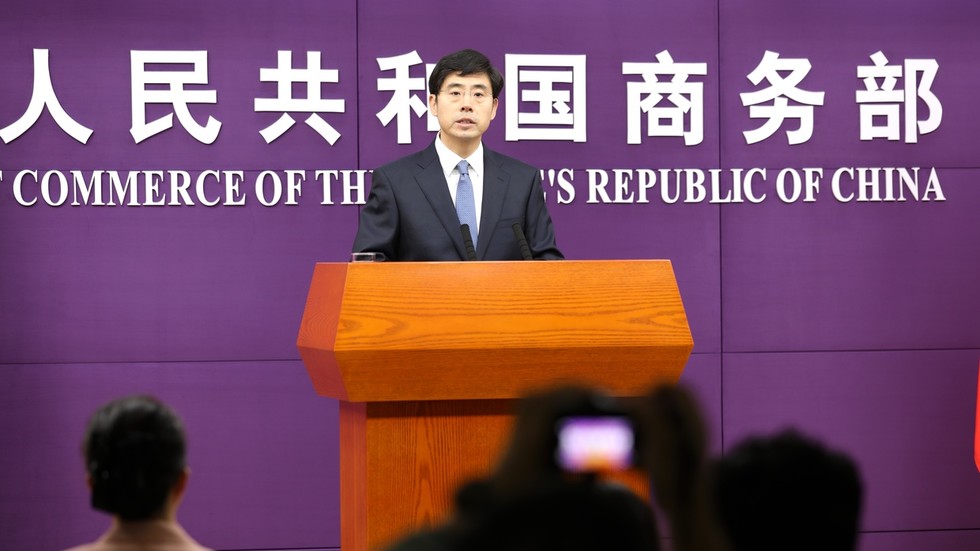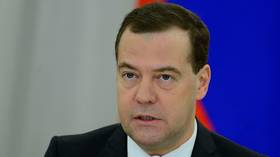
Beijing will take all necessary measures to protect the rights and interests of its enterprises, the Chinese Commerce Ministry has said

FILE PHOTO. China’s Commerce Ministry spokesperson He Yadong © Getty Images / Zhao Jun; China News Service; VCG
Washington’s latest round of sanctions against Russia and its partners, including China, is yet another example of US “economic coercion” undermining global trade relations, China’s Commerce Ministry said on Monday.
The US Treasury announced a new list of sanctions on Friday, targeting some 500 individuals and entities in Russia, as well as several Chinese companies, for Russia-related reasons.
Commenting on the restrictions, the Chinese Commerce Ministry stated on its official website that “the US approach is a typical example of unilateral sanctions, ‘long-arm jurisdiction’ and economic coercion, which undermines international economic and trade rules and order, and damages the security and stability of global industry and supply chains.”
Beijing stressed that it firmly opposes such moves and vowed to take all necessary measures to “resolutely safeguard the legitimate rights and interests of Chinese enterprises.”

Read more
Last week, the EU and the UK also included several Chinese companies in their latest rounds of Russia sanctions. Beijing responded on Monday by accusing Brussels and London of deliberately ignoring the positive development trends in their relations with China.
The ministry stressed that sanctions against Chinese companies have “no basis in international law” and warned that they will have a negative impact on the EU’s and UK’s economic and trade relations with China unless rescinded.
The latest US sanction list has turned out to be the longest produced by Washington to date. It includes Russia’s Mir payment card system, Russian energy firms and companies linked with the military-industrial sector, as well as a number of individuals including soldiers, figures involved in military procurement and financial executives. Some of the persons named do not reside in Russia and are based in countries like China, the United Arab Emirates, and Vietnam.
Moscow has responded to the latest restrictions by calling them “fruitless attempts to put pressure on Russia.” The Kremlin also announced that it has “significantly expanded” its own list of sanctions on European officials, entities, and private individuals, particularly those responsible for “providing military assistance to the neo-Nazi regime in Kiev.”




